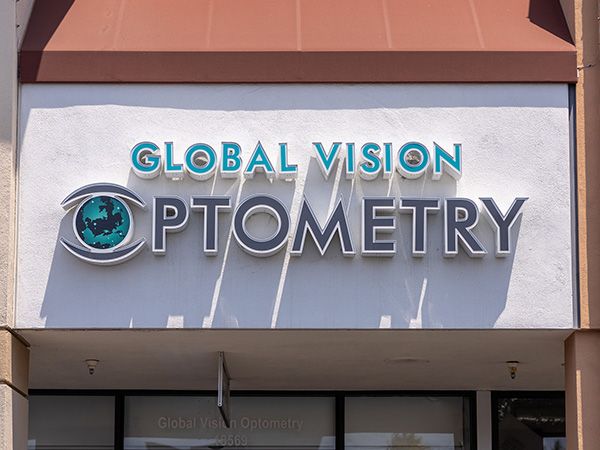
Myopia is a common refractive error that affects the way your eyes focus light. It's a condition where your eyes have difficulty focusing on distant objects, making them appear blurry. Understanding myopia and how it can be managed is crucial for maintaining good vision and eye health.
What Is Myopia and How Does It Affect Vision?
Myopia occurs when the eye's lens or cornea is too curved or the eyeball is too long. This causes light to focus in front of the retina instead of directly on it. As a result, distant objects appear blurred, while nearby objects remain clear.
Myopia can develop during childhood and often progresses as the eye continues to grow. Without proper management, it can lead to more severe vision problems, such as increased risk of eye diseases like retinal detachment, glaucoma, and cataracts.
Causes and Symptoms of Myopia
The exact causes of myopia are not fully understood, but it is believed to be a combination of genetic and environmental factors. Some common causes and risk factors for myopia include:
- Genetics: If one or both of your parents have myopia, you are more likely to develop it as well.
- Excessive near-work activities: Spending too much time on activities that require close-up focus, such as reading, using digital devices, or working on computers, can contribute to the development and progression of myopia.
- Lack of outdoor time: Studies have shown that spending less time outdoors and more time indoors can increase the risk of myopia.
- Rapid eye growth during childhood: The eye's rapid growth during childhood can lead to the development of myopia if not properly managed.
The primary symptom of myopia is blurred vision when looking at distant objects. Other symptoms may include:
- Squinting or straining to see clearly
- Headaches or eye strain after prolonged close-up work
- Difficulty seeing the board or road signs clearly
The Importance of Regular Eye Exams for Managing Myopia
Regular eye exams are crucial for managing myopia effectively. Comprehensive eye exams can help your eye doctor accurately diagnose and monitor the progression of your myopia. They can also identify any underlying conditions or complications that may be contributing to your vision problems.
During an eye exam, your eye doctor will measure the curvature of your cornea, the length of your eyeball, and the focusing power of your eyes. This information is used to determine the appropriate treatment plan for managing your myopia.
Myopia Management Techniques
Orthokeratology, or Ortho-K, is a non-surgical procedure that uses specially designed rigid gas-permeable contact lenses to temporarily reshape the cornea and correct refractive errors like myopia. The Ortho-K lenses are worn overnight while you sleep, gently reshaping the cornea. During the day, you can see clearly without the need for glasses or daytime contact lenses. Ortho-K is an effective option for children and adults with mild to moderate myopia, as it can slow the progression of the condition.
Atropine eye drops are a medication-based approach to managing myopia, particularly in children. Atropine works by temporarily relaxing the eye's focusing mechanism, which can help slow the progression of myopia. Low-dose atropine (0.01%) has been shown to be effective in slowing the progression of myopia in children without significant side effects.
Dual-focus soft contact lenses are another effective option for managing myopia, particularly for those who prefer the convenience of daily wear contacts. These lenses have a unique design that incorporates both a distance vision zone and a peripheral myopia control zone. The peripheral zone helps to slow the progression of myopia by controlling the focus of light entering the eye.
Schedule a Comprehensive Eye Exam with Global Vision Optometry Today
Myopia is a common vision condition that can have serious long-term consequences if not properly managed. By understanding the causes and symptoms of myopia, and exploring the various management options available, you can take an active role in preserving your eye health and maintaining clear, comfortable vision.
If you're concerned about your or your child's myopia, schedule an appointment with Global Vision Optometry. We can help you explore the best management options for your unique needs and develop a comprehensive plan to control the progression of your myopia. Visit Global Vision Optometry at our office in Huntington Beach, California, or call (714) 780-2008 to book an appointment today.





